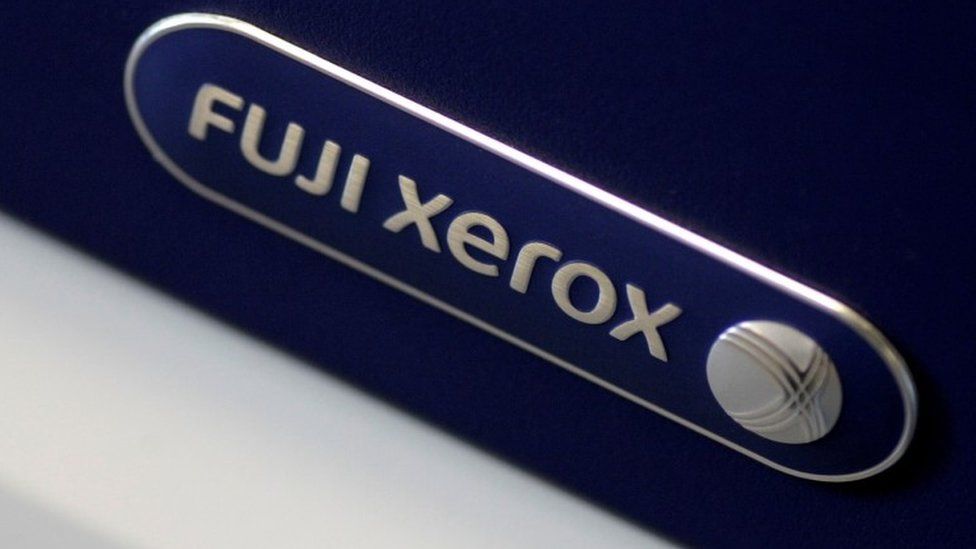Fujifilm to take over Xerox as photocopier demand drops
- Published

Japanese technology firm Fujifilm is to cut 10,000 jobs by 2020 at its Fuji Xerox subsidiary saying it faces an "increasingly severe" market.
It also plans to take a majority stake in Xerox, external and combine the US company into the joint subsidiary.
Fuji Xerox, which makes printers and copiers mainly in Asia and Australia, has been hit by falling demand.
Formed in 1962 it was the longest running joint venture between US and Japanese companies.
Once it has absorbed Xerox the company will be called "New Fuji Xerox" and will be 50.1% owned by Fujifilm.
"New Fuji Xerox will benefit not only from its size but also from its solid management resources, including strong brands, state-of-the-art technologies and excellent human resources," Fujifilm said in a statement.
Fujifilm has been looking to expand into print services and medical imaging.
Global demand for copiers and printers has declined, as people have switched to emailing documents and using smartphones to scan paperwork.
There has also been a push to use less paper and recycle more.
Digital world
Xerox has been under pressure from investors to re-invent itself and develop new strategies and products.
Billionaire investors Carl Icahn and Darwin Deason, who collectively hold over 15% of Xerox, joined forces last week to push Xerox to explore strategic options and negotiate better terms with Fujifilm.
Technology analyst Chris Green said: "It is not a surprise. The surprise is it did not happen sooner.
"Companies didn't make much money from the actual photocopiers and printers themselves, but more from the sale of toners and paper.
"They now need to consolidate and look at developing new software, storage solutions and providing services."
Xerox also reported, external a loss of $196m (£139m) in its fourth quarter, but that included a $440m charge related to tax changes in the US.
Without that charge income rose 26% to $226m, sales were flat at $2.75bn.